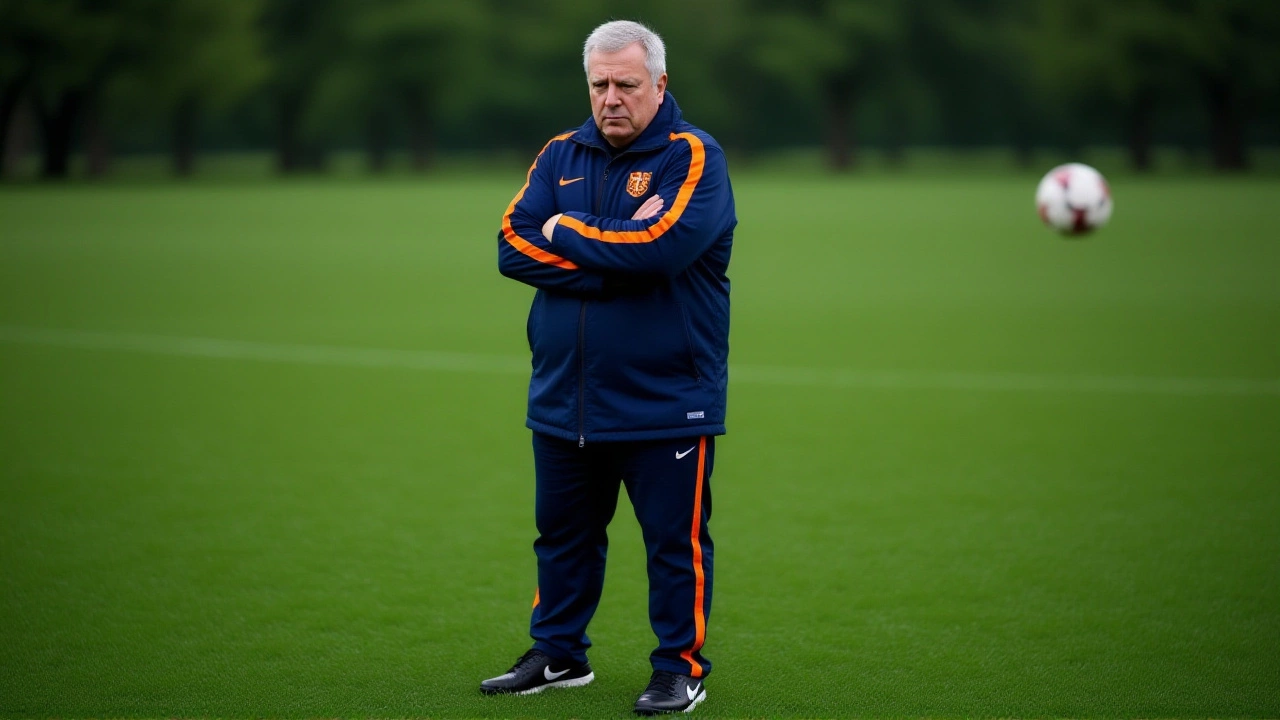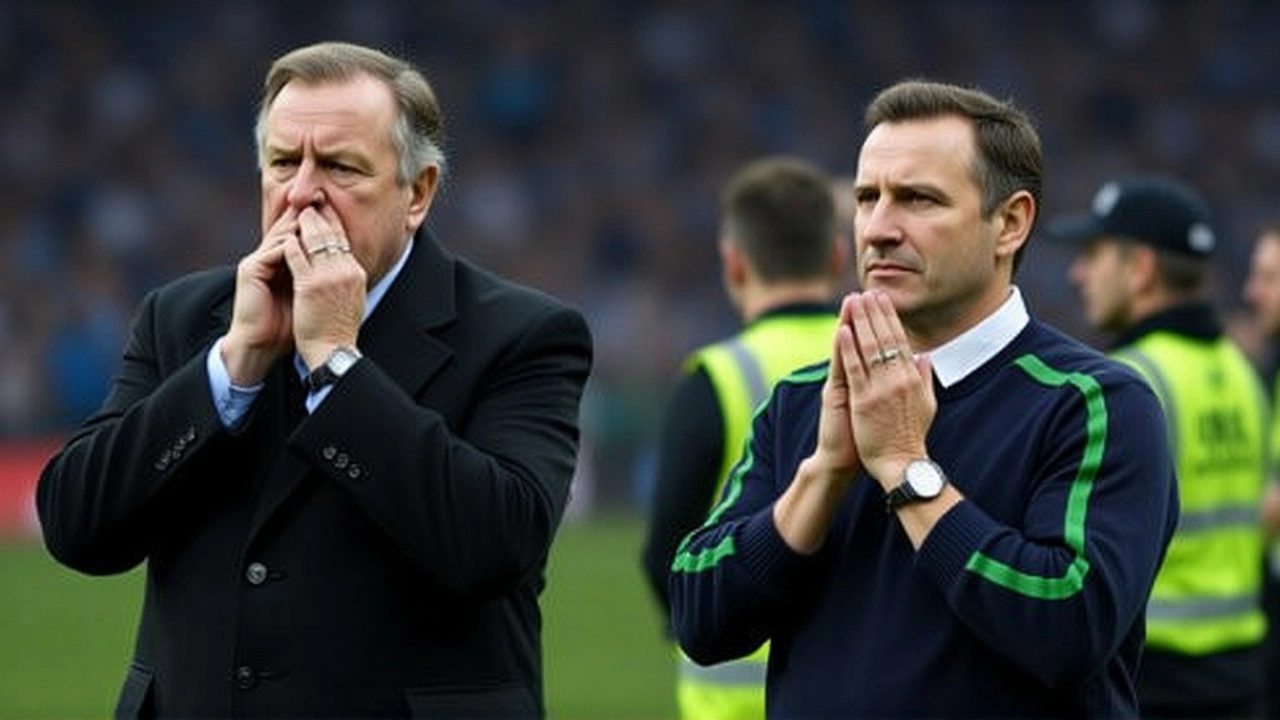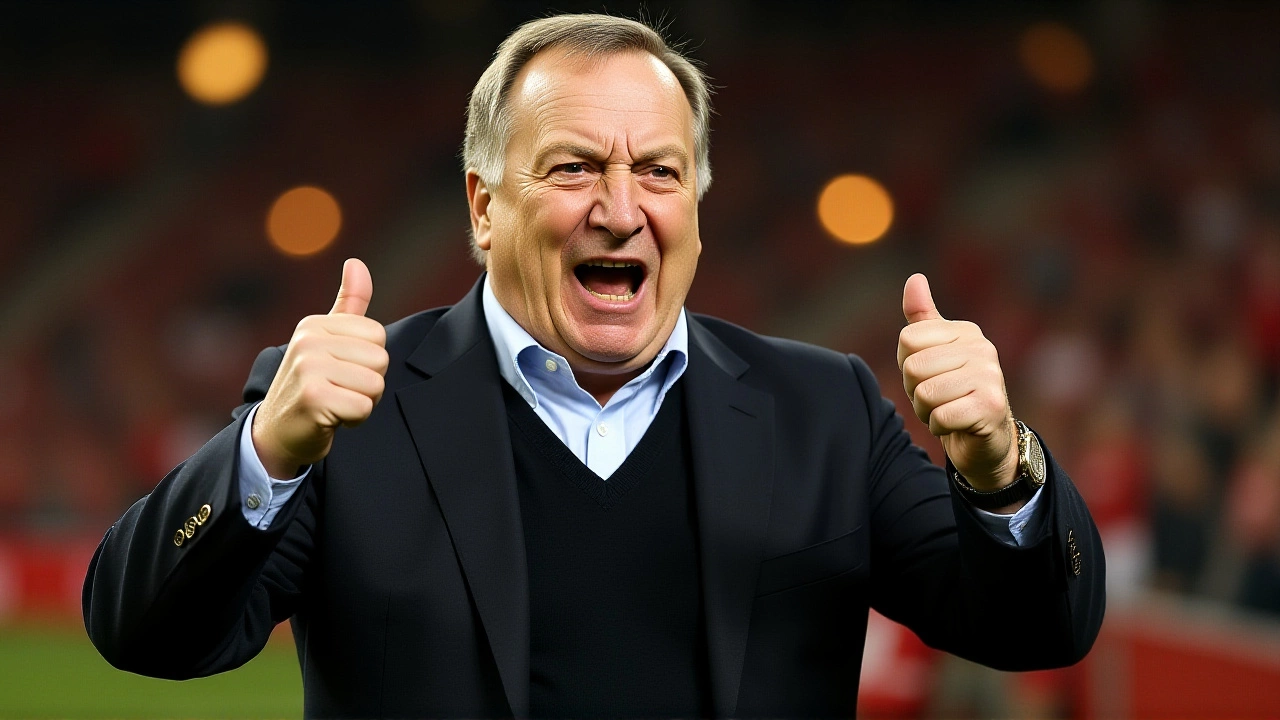When Dick Advocaat walked off the pitch at the Emirates Stadium on May 20, 2015, tears streaming down his face, it wasn’t just a win he’d secured—it was survival. Sunderland AFC, a club clinging to Premier League life, had just drawn 0-0 with Arsenal, leaving them safely in 16th place, three points clear of the drop. Advocaat, 67 at the time, had been hired barely two months earlier to do one thing: keep them up. He did. And then, in a move that stunned the football world, he announced his retirement.
From Savior to Retiree — Then Back Again
Advocaat’s appointment on March 17, 2015, came after the sacking of Gus Poyet, whose chaotic reign had left Sunderland in freefall. The Dutchman, known for his no-nonsense demeanor and deep tactical discipline, took over with just 11 games left. His first match? A 1-0 loss to West Ham. His first win? A 1-0 derby triumph over Newcastle on April 5 — a result that sent the Stadium of Light into delirium. The turnaround was real: wins over Southampton and Everton, a gritty draw at Stoke. By the final whistle against Arsenal, the fans knew: this wasn’t luck. This was leadership.He’d done the impossible. And he was done.
But football, as it often does, had other plans.
Just over two weeks later, on June 4, 2015, Advocaat stunned everyone by reversing his retirement. He signed a one-year contract to lead Sunderland into the 2015-16 season. The club’s chairman, Ellis Short, hailed it as a "masterstroke." Advocaat brought back two familiar faces: Jeremain Lens, the Dutch winger he’d coached at PSV Eindhoven, and Fabio Borini, the Italian striker who’d once thrived on loan at Sunderland. The message was clear: continuity, loyalty, experience.
The Descent: When the Magic Faded
The 2015-16 season began with a thud. Seven games. Zero wins. Draws against Manchester City and West Brom. Losses to Hull and Tottenham. By early October, Sunderland sat in 19th place — deep in the relegation zone with just six points from 14 possible. Their goal difference? -7. The team looked flat, disjointed, out of ideas.Advocaat’s only victory that season came in the League Cup — a wild 6-3 win over Exeter City on August 25, 2015. It was a rare flash of brilliance in a sea of mediocrity. In the Premier League, the team couldn’t score. Couldn’t defend. Couldn’t even muster a spark.
After a 2-2 draw at the Boleyn Ground against West Ham on October 3, the cracks became chasms. Players looked confused. Fans booed. The press turned on him. And on October 4, Advocaat resigned.
His final record at Sunderland? Four wins, six draws, nine losses across all competitions. A rollercoaster that began with tears of joy and ended in quiet disappointment.

Why It Mattered
Advocaat’s tenure wasn’t just about results. It was about identity. He took a club that had been flailing under Poyet’s erratic style and imposed structure. He trusted veterans, relied on discipline, and demanded effort. In March, that was enough. In October, it wasn’t.The Premier League had changed. Teams were faster, more aggressive, more tactically fluid. Sunderland, under Advocaat, hadn’t adapted. His system, so effective in 2015’s lower-stakes final stretch, couldn’t survive the full-season grind.
And yet — his impact was undeniable. Without Advocaat, Sunderland would’ve been relegated in May 2015. He didn’t just save them. He gave them belief. That’s why his return in June felt like a gift. And why his departure in October felt like a betrayal — not by him, but by circumstance.

A Legacy Beyond the Tyne
Advocaat’s career spans more than three decades. He managed the Netherlands national team three times. He led Russia to Euro 2008. He coached South Korea at the 2002 World Cup. He won league titles in the Netherlands and Scotland with PSV and Rangers. He’s a man who’s seen it all.But Sunderland? That was different. It wasn’t about trophies. It was about saving a club from oblivion — and then trying, desperately, to keep it afloat.
His resignation marked the end of his second stint in English football. He’d come back to the Premier League not for glory, but for duty. And when duty became impossible, he walked away — with dignity, if not with success.
His story at Sunderland is a reminder: even the greatest managers can’t fight gravity forever. Sometimes, saving a team from falling is the hardest thing you’ll ever do. And sometimes, staying up is even harder.
Frequently Asked Questions
Why did Dick Advocaat initially retire after saving Sunderland from relegation?
Advocaat, then 67, had always planned to step away after achieving his sole objective: keeping Sunderland in the Premier League. He viewed the job as a short-term rescue mission, not a long-term rebuild. The emotional toll of the relegation battle — including tears after the Arsenal draw — convinced him his energy was spent. He felt he’d done what he came for.
What went wrong during the 2015-16 season under Advocaat?
Sunderland’s squad lacked depth and pace, and Advocaat’s defensive, structured approach failed against the Premier League’s increasingly dynamic teams. Key players underperformed, injuries mounted, and the team couldn’t score goals. The 0-0 start to the season exposed tactical rigidity. Even his League Cup win over Exeter City couldn’t mask the Premier League struggles.
How did Advocaat’s previous experience influence his time at Sunderland?
His history with PSV Eindhoven helped him bring in Jeremain Lens, a player he trusted. His experience managing national teams, including Russia and South Korea, gave him authority in dressing rooms. But managing a Premier League relegation battle — with media pressure, fan anger, and financial constraints — was different from international tournaments. He wasn’t equipped for the relentless, year-round grind.
What was the significance of Advocaat’s win against Newcastle in the Tyne-Wear derby?
That 1-0 win on April 5, 2015, was the emotional turning point. It wasn’t just three points — it was pride. Newcastle, their bitter rivals, had been a symbol of everything Sunderland feared: decline, irrelevance. Beating them at home, in front of 46,000 fans, proved Advocaat could inspire the team. It became the foundation of their survival.
Did Advocaat ever manage in England again after Sunderland?
No. His resignation in October 2015 marked his final managerial role in English football. He briefly returned to manage the Belgium national team in 2016, but never again took a club job in the UK. Sunderland remained his last and most emotionally charged English chapter.
How does Advocaat’s Sunderland tenure compare to other relegation-saving jobs in Premier League history?
Few managers have saved a club with such a short tenure and then returned for another attempt. His initial success rivals Tony Pulis’s 2015 rescue of Stoke, but his subsequent collapse mirrors the fate of managers like Alan Pardew at Newcastle — great in the short term, unable to sustain it. Advocaat’s story is unique: a savior who came back, only to be overwhelmed by the same pressures he once conquered.

Hi, I'm Deacon Lockhart, a gaming expert with a passion for all things video games. I've spent years honing my skills in various platforms and genres, and now I enjoy sharing my experiences and insights with fellow gamers. As a dedicated writer, I love to create engaging content on game reviews, news, and in-depth analysis. Whether you're a casual player or a hardcore enthusiast, I aim to provide something for everyone in the gaming community. Let's embark on this exciting journey together and explore the incredible world of gaming!